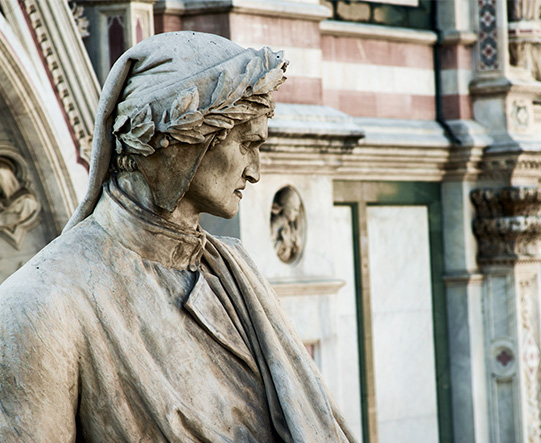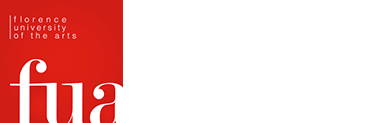- Details

By Sarah Waller
Photo by David Weiss
The study abroad experience is a unique educational opportunity to further students’ current studies as well as to explore a new culture. FUA offers classes about Italian culture and literature that allow students to do both at the same time. Thanks to Florence’s culture and long-standing tradition of literary figures, some FUA classes not only present cultural-literary topics to learners but also directly involve participants in the important connection between Florence and its urban culture, while others provide the opportunity to experience Florence from the perspectives of famous authors.
Creating a Strong Identity
Teaching students from around the world about Italian Identity is Dario D’Ambrosia’s passion. The “An Italian Identity: Speak the Culture” class covers everything from Italian language to modern Italian cinema. Each class teaches an aspect of Italian culture for the first hour and a corresponding language lesson the second hour. When the lesson allows, the students take a planned walk through the city. For example, when learning about the cinema the class took a trip to a local theater.
“If you enjoy the moment, these things stay present in your mind for longer,” D’Ambrosia explains.
The mix of language, culture and experience ties perfectly together to give students a memorable, positive experience in the classroom.
A Walk Through Literature: Dante and Vasco Pratolini
Students find Renaissance art easily. When walking to the Uffizi or the nearest street corner and more than likely, students will find another wonder of Italy. The written form of art is a bit harder find. FUA offers multiple classes that bring the art to life through the pages of Florentine authors.
Faculty member Marta Russo recently concluded the Fall 2015 edition of the course “Vasco Pratolini’s Florence: Readings and Cultural Walks.” Pratolini is a late 20th century Italian novelist whose books are set in emblematic Florentine neighborhood. On a typical day, the students complete assignments or in-class coursework about a topic in order to acquire the author’s direct perspective before heading out into the city. The walks are structured as an academic component of the lesson and benefit the students in an indescribable way.
“You are creating a very strong concrete experience,” Russo said. “It helps with memory, connecting what you learn in the classroom to what’s outside.”
A similarly structured course about Dante, Florence’s famous epic poet, is slated for the Fall 2016 semester. Both have the same structure and concept – the Pratolini class explores a wider range of the city because his novels were written across various neighborhoods while the Dante class focuses on the history of buildings and monuments. Bringing the direct author perspective as an exploration into the classroom creates strong memories for both the class material and adds to the entire experience of studying in a new culture.
Further details of upcoming editions of the courses can be found in the FUA Fall 2016 Academic Schedule.
This article was originally published at the sQuola departmental site.
